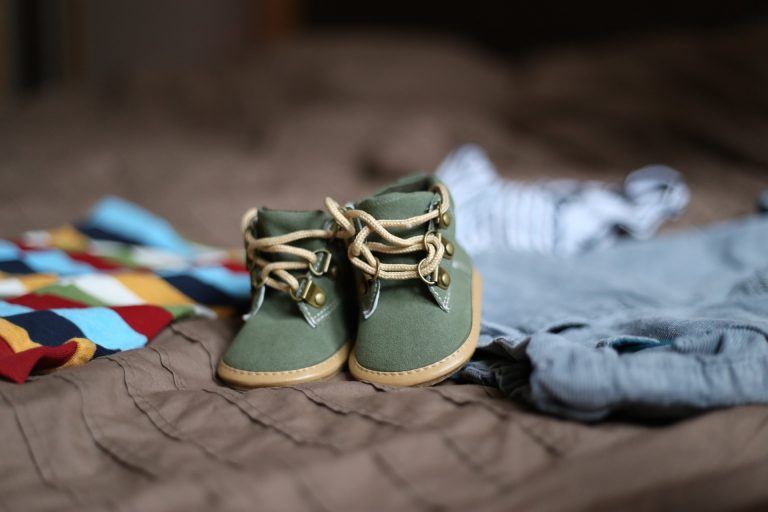How Much Sleep Does a Baby Need? Can There Be Too Much?
As a new parent, one of the most important things you can do for your baby is to ensure they get enough sleep. Sleep is critical for a baby’s growth, development, and overall health. Understanding your baby’s sleep needs is essential to help them get the rest they need and to promote healthy sleep habits for the future.
Newborn babies need about 14- 17 hours of sleep a day, their awake periods will increase with time so babies are down to around 12 – 15 hours of sleep per day in the second half of their first year.
So let’s explore your baby’s sleep needs and what you should know about it.
How Much Sleep Should a Baby Get?
Babies who get enough sleep are happier, healthier, and better able to learn and explore the world around them. The answer seems simple, but how much is enough?
The American Academy of Pediatrics recommends the following amount of sleep based on age:
- Newborns (0-3 months): 14-17 hours per day
- Infants (4-11 months): 12-15 hours per day
- Toddlers (1-2 years): 11-14 hours per day
But these are general guidelines and every baby is different. Some babies may need more sleep than others, so pay attention to your baby’s individual sleep needs.
Additionally, your baby’s sleep cycle is undergoing massive changes within the first 8 months after birth. In the beginning, babies have an equal amount of quiet to active sleep within a cycle, while at 8 months quiet sleep was twice as long as active sleep. So it is totally normal if your newborn seems more fidgety in their sleep, but that doesn’t mean he or she is about to wake up, their sleep will quiet down once they get older.
Common Concerns About Baby’s Sleep
Many parents worry that their baby is not getting enough sleep, but remember that newborns and infants have irregular sleep patterns and may wake up frequently during the night. If your baby is gaining weight and meeting developmental milestones, they are likely getting enough sleep.
However, there are many ways you can help to ensure that your baby is getting enough sleep and if you have serious concerns, it’s always a good idea to talk to your pediatrician.
Is Baby’s First Nap the Longest?
Babies spend a lot of their early months sleeping, and it’s not uncommon for new parents to worry about their baby’s sleeping patterns.
Typical length and timing of a baby’s first nap
Babies tend to fall asleep easily after they wake up in the morning and their first nap usually occurs 1-2 hours after they wake up. The length of their first nap can vary greatly and is often their longest nap of the day. The average length of a first nap is about 1.5 to 2 hours.
How to encourage longer naps
If you want to encourage longer naps, there are several things you can try. First, make sure that your baby’s sleeping environment is quiet, dark and comfortable. Consider using white noise to block out external noise.
Second, ensure that your baby is well-fed before nap time, but not too full, so that they aren’t uncomfortable.
Third, try to establish a consistent nap routine, and introduce relaxing routines such as reading a book or singing a lullaby before sleep time.
Should Babies Nap in the Dark?
When it comes to creating a suitable sleep environment for babies, one of the key factors is the level of light in the room. Many parents wonder if their baby should nap in the dark, and the answer is generally yes. Here’s why:
Benefits of Napping in a Dark Room
Promotes better sleep: Darkness helps regulate the body’s production of melatonin, a hormone that promotes sleep. A dark room can help your baby fall asleep faster and stay asleep longer.
Reduces stimulation: Bright lights and visual stimulation can be distracting for babies, making it harder for them to settle down for a nap. A dark, quiet room can help them relax and feel more comfortable.
Creating a Suitable Sleep Environment for Naps
- Use blackout curtains: These are curtains or blinds that block out light completely. They can be especially helpful for daytime naps when the sun is shining.
- Keep the room cool: A cooler room temperature can also help your baby sleep better. Aim for a temperature between 68-72°F (20-22°C).
- Use white noise: Soft, calming sounds like white noise or gentle music can help create a peaceful environment for napping. It can also help to cover distracting noises (like playing siblings).
Some parents worry that napping in the dark will make their baby afraid of the dark or disrupt their nighttime sleep. However, it’s important to note that babies are not afraid of the dark until they are old enough to understand the concept of darkness. Fear of darkness is a common fear in kids, but it is often developed around the age of two.
Additionally, exposure to light during the day and darkness at night can help regulate their circadian rhythm, which can promote better nighttime sleep. Darkness during their nap time won’t disrupt that.
Is a One-Hour Nap Enough for Baby?
As parents, we always want to ensure that our little ones are getting enough sleep to support their healthy development. Let’s explore the recommended nap length for babies based on age and talk about some of the common questions that come up.
Recommended Nap Length for Babies Based on Age
The recommended nap length for babies varies depending on their age. Here is a general guideline for the amount of daytime sleep babies should get:
- Newborns (0-3 months): 14-17 hours per day, with naps lasting anywhere 0.5 to 2 hours.
- Infants (4-11 months): 12-15 hours per day, with naps lasting 1-2 hours.
- Toddlers (1-2 years): 11-14 hours per day, with one or two naps lasting 1-3 hours.
But these are only general guidelines, and your baby’s individual sleep needs may vary.
Keep in mind, that all babies are different, and some may have shorter naps than others. If your baby’s naps are consistently shorter than expected, it could be a sign that they are not getting enough sleep overall or maybe they need less sleep. Is your baby whiney or in a bad mood? In this case, you may need to adjust their nap schedule or maybe make changes to their sleep environment. Because they probably need more sleep.
A consistent and predictable nap time routine can help cue your baby’s brain that it is time to sleep. This can include relaxing activities such as singing a lullaby, reading a story, or simply cuddling.
What If My Baby Only Naps for 30 Minutes?
It is not uncommon for babies to take short naps, especially if they are going through a developmental milestone or growth spurt. However, if your baby consistently takes short naps, it may be a sign that they are not getting enough sleep overall.
Try implementing some of the tips mentioned above to encourage longer naps. Additionally, it could be beneficial for your baby to learn to fall asleep independently. Depending on you can be a reason for constantly waking up during nap time. Encourage your baby to fall asleep on their own by putting them down drowsy but awake.
Can lack of sleep affect my baby’s development?
Yes, lack of sleep can affect your baby’s development. Studies have shown that babies who get less sleep than recommended may have delayed cognitive and motor development. Sleep is essential for healthy brain development, so it is important to prioritize your baby’s sleep needs.
What if my baby is sleeping too much during the day?
While it is crucial for babies to get enough sleep, it is also possible for them to sleep too much during the day, which can interfere with their nighttime sleep. If your baby is consistently napping for more than 3 hours during the day, you may want to consider adjusting their nap schedule or shortening their naps.
Tips for Helping Babies To Get Enough Sleep – Conclusion
As a parent, knowing how to help your kids achieve the recommended amount of sleep can be challenging, but you can do it. Here is a short overview of things that have a positive impact on your little one’s sleep routine.
1. Establish a Consistent Sleep Routine
Babies thrive on routine and predictability, so creating a consistent sleep routine can be helpful in promoting sleep. A bedtime routine could include a warm bath, a story or lullaby, and dimming the lights to signal to your baby that it’s time for sleep.
2. Create a Suitable Sleep Environment
A comfortable sleep environment can help your baby feel relaxed and ready for sleep. This could include a comfortable mattress, an appropriate temperature, or a calming sound for creating a peaceful sleep environment.
3. Encourage Daytime Activity and Exposure to Natural Light
Babies who are active during the day and exposed to natural light tend to sleep better at night. Take your baby for walks during the day, encourage tummy time, and allow for plenty of playtime. Exposing your baby to natural light during the day can help regulate their sleep-wake cycle and boost their immune system.
4. Address Sleep Issues in a Gentle and Responsive Manner
It’s common for babies to experience sleep issues such as night wakings and sleep regressions. When addressing these issues, it’s essential to respond gently and responsively. Avoid things that could overstimulate your baby before bedtime, such as playing with electronic devices or watching television.
5. Relax You’re Doing Great
Our children aren’t little robots and there will be always times when it doesn’t work out perfectly. And that is okay. A lot of it will just be phases and won’t go on forever. So just relax, (try to) keep your cool, be empathetic and loving with your little one, and enjoy what you have instead of worrying about what isn’t perfect. Our imperfections are what makes us perfect.







